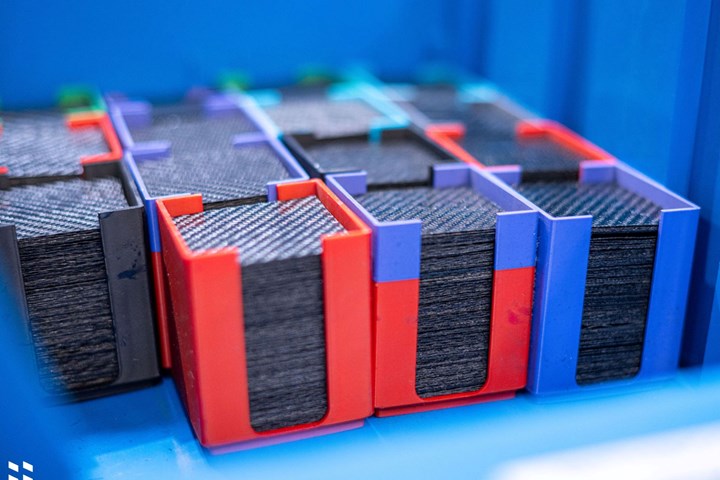Exel Composites, Fairmat sign carbon fiber scrap repurpose deal
Exel material waste will go through Fairmat’s reconstitution process to produce second-generation CFRP chips, enabling a closed-loop ecosystem.
Exel Composites (Vantaa, Finland) and Fairmat (Paris, France) have announced a partnership to close the loop of carbon fiber waste. Fairmat will recycle Exel Composites’ carbon fiber composite scrap at its Nantes, France, manufacturing facility to produce second-generation carbon fiber-reinforced polymer (CFRP) chips for high-performance composite layups and structures. Beginning in Q2 2024, the carbon fiber composite scrap will be transferred to Bouguenais from Exel’s two plants in Finland.
Traditional waste management techniques involving pyrolysis or solvolysis use significant amounts of energy, mitigating the environmental benefits of recycling used carbon fiber (read “Recycling end-of-life composite parts: New methods, markets”). In contrast, Fairmat’s reconstitution process uses proprietary cutting technologies — aided by robotic tools equipped with machine learning — to dissemble carbon fiber components and convert the pieces into CFRP building blocks.
“Fairmat’s innovative recycling methodology enables its products to retain the high strength and stiffness of the original embedded fibers,” explains Kim Sjödahl, senior VP of technology and sustainability at Exel Composites. “This is often compromised by other recycling methods that involve chopping and milling carbon fiber. Combined with its minimal energy input, Fairmat’s process is game-changing for sustainability in the composites industry. What’s more, the successful recycling of process waste also opens possibilities to recycle the end-of-life waste from our customers.”
Benjamin Saada, founder and CEO of Fairmat, adds that this partnership with Exel aligns with the company’s mission to build a closed-loop ecosystem that keeps high-value products from going to waste.
Using AI tools such as digital twins to model different 3D arrangements during the design phase, Fairmat can assemble its CFRP chips into a variety of layouts and structures. These simulations enable it to customize the mechanical properties of the resulting product, such as low weight, for transportation components and localized, unidirectional strength for impact surfaces.
Related Content
-
Bio-based acrylonitrile for carbon fiber manufacture
The quest for a sustainable source of acrylonitrile for carbon fiber manufacture has made the leap from the lab to the market.
-
ASCEND program update: Designing next-gen, high-rate auto and aerospace composites
GKN Aerospace, McLaren Automotive and U.K.-based partners share goals and progress aiming at high-rate, Industry 4.0-enabled, sustainable materials and processes.
-
Infinite Composites: Type V tanks for space, hydrogen, automotive and more
After a decade of proving its linerless, weight-saving composite tanks with NASA and more than 30 aerospace companies, this CryoSphere pioneer is scaling for growth in commercial space and sustainable transportation on Earth.

















